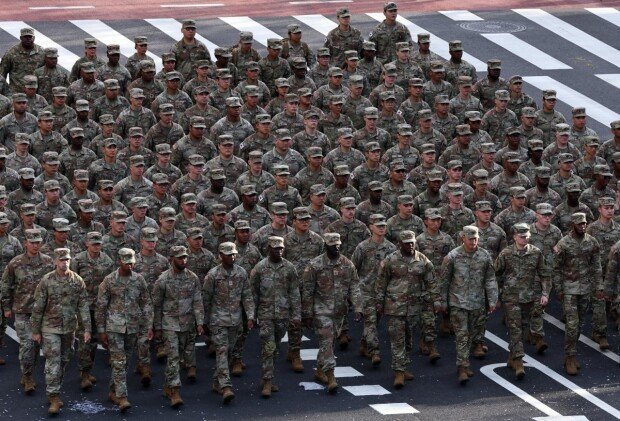‘U.S. military to maintain forces in S. Korea at current level of 28,500’
‘U.S. military to maintain forces in S. Korea at current level of 28,500’
Posted December. 12, 2024 08:05,
Updated December. 12, 2024 08:05

The U.S. Congress has released the House and Senate versions of the National Defense Authorization Act (NDAA) for Fiscal Year 2025, which states that the U.S. military will maintain the current level of 28,500 U.S. troops in South Korea regardless of the inauguration of Donald Trump's second administration. It also requires the Defense Department to report on specific measures to strengthen defense cooperation among South Korea, the U.S., and Japan and extend deterrence for South Korea.
In the ‘Congress’ Recognition of South Korea’ section of the NDAA, the House and Senate said, “The U.S. will maintain the approximately 28,500 U.S. military personnel deployed to South Korea under the South Korea-U.S. Mutual Defense Treaty, strengthen our mutual defense foundation, and reaffirm our commitment to extended deterrence using the full range of U.S. military capabilities,” according to the U.S. Congress on Tuesday.
The language to keep U.S. forces in South Korea at current levels has been included annually in the NDAA, which contains the defense budget and major policies. Previously, Congress included a provision in the 2019-2021 NDAA that prohibited funding from being used to reduce U.S. forces below current levels. After that, President Trump hinted at possible cuts in his first term. While the restriction was removed after the inauguration of Joe Biden's administration, the new measure is seen as a move emphasizing the ‘no (troops) cuts’ policy.
It also emphasizes the need to strengthen trilateral defense cooperation, stating that “cooperation with South Korea, Japan, and others should be enhanced to promote the comparative advantage of the United States in strategic competition with China.” In this regard, Congress required the Defense Secretary to submit a plan to enhance trilateral defense cooperation annually through 2029.
The bill also requires the U.S. Defense Department to submit a plan by March 1 next year to strengthen the U.S. extended deterrence commitment to South Korea. It also calls on the department to include a process for bilateral nuclear consultations between Washington and Seoul in times of crisis, a South Korea-U.S. nuclear strategic plan, information-sharing arrangements, and the budget and resources needed to strengthen extended deterrence.
워싱턴=문병기 특파원 weappon@donga.com
Headline News
- People Power Party edges closer to impeachment of Pres. Yoon
- GM Korea produces four out of 10 bestsellers in U.S. small SUV market
- Former Defense Minister Kim attempts suicide at detention center
- ‘U.S. military to maintain forces in S. Korea at current level of 28,500’
- Liverpool FC leads UEFA Champions League







